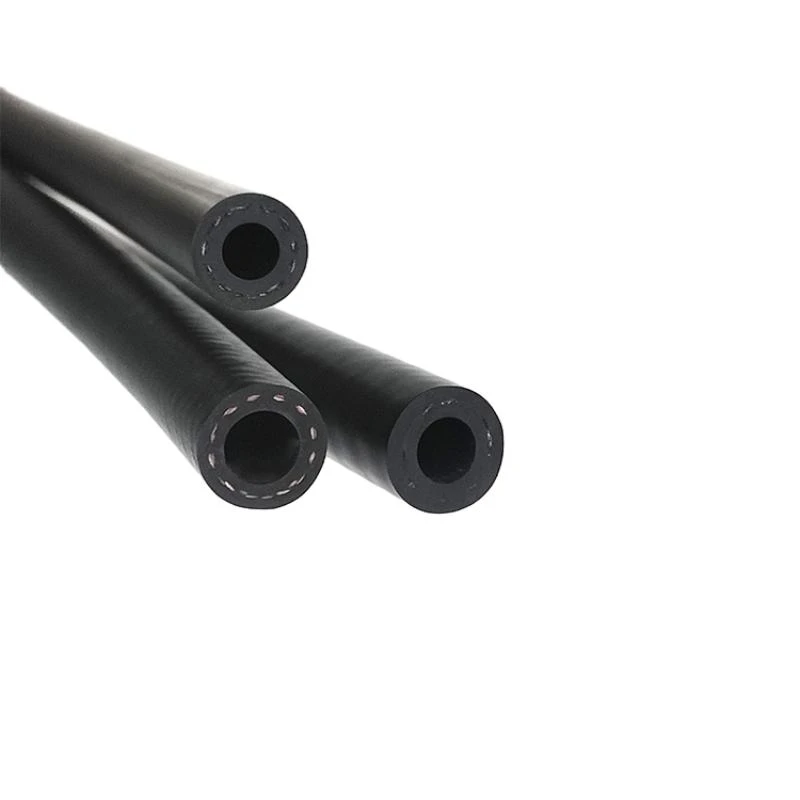High-Performance Oil-Resistant Heater Hoses for Automotive Applications
Nov . 25, 2024 22:56 Back to list
High-Performance Oil-Resistant Heater Hoses for Automotive Applications
Understanding Heater Hose The Importance of Oil Resistance
In automotive engineering, the heater hose is a crucial component that ensures efficient climate control within the vehicle. Located close to the engine, it is responsible for directing hot coolant into the cabin heater core, allowing the passenger compartment to warm up during cold weather. However, not all heater hoses are created equal. One of the key factors that determine the performance and longevity of a heater hose is its oil resistance.
What is Oil Resistance?
Oil resistance refers to a material's ability to withstand degradation and maintain its integrity in the presence of oil or oil-based substances. In automotive applications, hoses can encounter a variety of fluids, including engine oil, transmission fluid, and other lubricants. If a heater hose is not oil-resistant, exposure to these substances can lead to material deterioration, cracking, or even complete failure, thereby compromising the vehicle’s heating system.
Why is Oil Resistance Important for Heater Hoses?
1. Preventing Failures A heater hose that is resistant to oil ensures that it can endure the harsh conditions inside an engine compartment. With oil leaks being a common issue in vehicles, having a hose that can resist oil absorption is essential to prevent premature failure.
2. Extending Lifespan Using oil-resistant materials helps to extend the lifespan of the heater hose. The resistance to oil not only enhances the hose’s durability but also reduces the need for frequent replacements, leading to lower maintenance costs for vehicle owners.
3. Maintaining Performance An oil-resistant heater hose helps maintain consistent coolant flow and temperature regulation within the vehicle. If a hose were to fail or degrade due to oil exposure, it could lead to decreased heating performance, resulting in an uncomfortable experience for passengers.
heater hose oil resistant

Materials Used in Oil-Resistant Heater Hoses
Common materials used to manufacture oil-resistant heater hoses include reinforced rubber, silicone, and thermoplastic elastomers (TPE). Each of these materials offers varying degrees of oil resistance, thermal stability, and flexibility, allowing manufacturers to produce hoses that meet specific performance requirements.
- Reinforced Rubber This is a traditional choice for many automotive components due to its excellent resilience against oil and heat. It is often used when high flexibility is needed.
- Silicone Known for its superior heat resistance, silicone hoses are also inherently resistant to oil and other automotive fluids. They are often used in high-performance applications where extreme conditions are expected.
- Thermoplastic Elastomers (TPE) TPEs combine the characteristics of rubber and plastic, offering good oil resistance along with lightweight properties. They are increasingly being used in modern vehicles due to their versatility and ease of manufacturing.
Conclusion
In summary, the oil resistance of heater hoses is a critical factor that impacts the overall reliability and efficiency of automotive heating systems. Selecting the appropriate materials ensures that these hoses can withstand the challenging environment of an engine compartment, preventing failures and enhancing vehicle performance. Vehicle owners should prioritize oil-resistant heater hoses when considering replacements or upgrades, as this choice can lead to significant benefits in terms of durability and cost-effectiveness.
